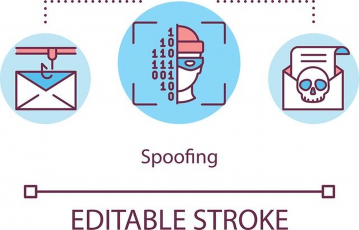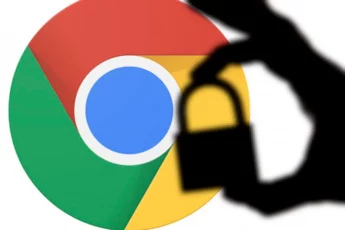In today’s digital world, everyone online is hunting for ways to intrude into your personal online space. Therefore, it’s inevitable to block all snoopers by hiding your IP address.
Of course, as an independent and free internet user, you deserve the right to digital privacy. But those web trackers, hackers, and often governments won’t let you do that easily.
So, if you love staying anonymous online or having access to geo-blocked sites, learn how to keep your IP address anonymous through this guide.
But before discussing how you can hide your IP address, let’s get some basics out of the way.
Quick guide to hide IP address online
While you can use several means to mask your IP, you might be in a rush to read them all. So, here we quickly explain the most effective way for it – using a VPN.
- Subscribe to a robust VPN service provider. Ideally, choose a top-notch premium VPN service to get the best security features. NordVPN is our no. 1 recommendation.
- Download the VPN client for your device. You can also use the VPN’s browser extension for added privacy (if available).
- Install the app. Usually, it takes only a few clicks to set up the VPN.
- Connect to a VPN server. You can browse the list of servers available and choose the one from your desired with the best speeds.
- Start browsing safely. As a precaution, consider clearing your device or browser cache after connecting the VPN so that it can better hide your real IP address.
What’s an IP Address?
An Internet Protocol (IP) address is a numerical identifier for a device connected to a network. This includes all devices, including your computers, smartphones, smart home devices, and other IoT appliances.
Through this identifier, the other devices and/or the server on the network identify a specific device to transmit data to. In this way, the IP address serves identification purposes and becomes the location address for the network.
What is my device IP?
Generally, your device holds two different types of IP addresses depending on how it communicates online and offline. These include a private IP and a public IP.
A private IP address is unique to a device within the network. This private IP serves as the basis for offline communications, and hence, remains private. Despite being unique within a network, it may repeat for another device in another network. However, that won’t be a problem since the two networks would seldom communicate.
But if the networks ever communicate, it is almost always via the internet. So that’s where the second type of IP address plays its role – the public IP address.
Public IP addresses are unique for every device online. These IP addresses let the devices and the web servers communicate with each other over the internet. While they are unique, they may be shared by different devices within the same private network for online communication.
For your device, the private IP address is the one that your router has assigned to it. You can log in to your router’s admin panel and find out the private IP addresses of all devices (including your computers, smartphones, and others) connected to it. You will notice that this IP address is unique for every device.
In contrast, you can search for “what is my IP” on Google or any other search engine to check your public IP address. Or, you can use this IP checker tool to find your public IP address. This IP address is the one that your ISP has assigned to your network. And so, all devices connected to your network (set up by your router) will share the same public IP address.
Since your private IP remains invisible online, you don’t have to worry about securing it. Instead, the IP address you must hide is the public IP, securing which automatically protects your network.
Guide on how to hide your IP address (4 easy methods)
Protecting your IP address isn’t tricky. All it takes is to use some tool that works over your device’s network providing it with another IP address.
In short, there are several ways to hide the IP address of your device. You can either use VPN software (you have to pay for this if you fancy a quality experience) or use other free methods. Below we list them all in detail.
1. Masking your IP address through a VPN
It is the most reliable and easiest way to hide your IP address anywhere.
However, this method is not free.
Although there are some free VPNs, they aren’t strong enough to protect your online integrity. Whereas you need a quality VPN provider on your side for reliability and speed.
So, in most cases, you have to buy the package for a certain amount of time or pay a subscription fee to the service provider.

Virtual Private Network (VPN) will give you a virtual IP address so you can easily access those sites that are restricted to your computer’s actual IP address.
The VPN servers work by assigning unique IP addresses from their servers to your computer as an alternate IP address. Your device then uses the VPN IP to connect to the internet securely. That’s how your device’s real IP address gets hidden online.
Quality VPN providers such as ExpressVPN have servers in different locations globally. Therefore, these services can assign IP addresses from other places to your device, depending on your package.
A significant benefit of hiding your IP address through a tested VPN like ExpressVPN is the fastest level of connection you will get.
Although, you can find many cheap or even free VPN services in the market. But they could slow your connections to frustration levels (everything free comes with a price indirectly).
But you won’t face such issues should you go with genuine VPN connections.
That means you should steer clear of the fake VPN services that may be far slower than what you have bargained for.
That’s why selecting the right VPN IP service provider is essential.
Apart from the excellent connection speed, VPNs are also great for connecting to Torrent sites. Some quality VPN providers like NordVPN even offer dedicated P2P servers for torrenting. That will be an extra feature for you. But such VPNs that support torrenting are usually more expensive.
If you want to hide your IP address safely alongside grabbing all the added premium features, a good VPN such as ExpressVPN will ensure that.
Besides, it boasts cutting-edge security protocols and advanced encryption to ensure your computer’s original IP address never gets exposed online.
That is why it is regarded as a reliable VPN. But you need to spend some bucks to get such a VPN service.
But if you don’t have enough cash to pay for a VPN service like ExpressVPN, you have other free options to hide your IP address. Below we cover them in detail.
2. Hiding your IP address through Tor Network
You can stay utterly undetected while surfing the internet by using a free IP hiding tool — the Tor network.
The Tor network uses a free client-based system involving a collection of different volunteer servers.
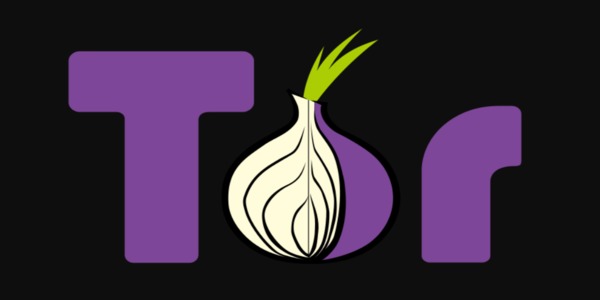
When you connect via the Tor network, your computer’s traffic passes through several servers before reaching its destination. That’s how it becomes complicated to track where the traffic comes from. So, it leaves your IP untraceable online.
Tor offers multiple layers of protection to ensure your computer’s IP address is entirely off the radar.
However, it has the same problem as a proxy server or free browser extension.
Your connection speed gets slow since your computer’s traffic passes through several servers before reaching the destination.
However, the good thing is this method of hiding IP addresses is completely free.
You are not paying a single cent to surf online securely, download videos, or browse web pages you like. So yes, your IP address will remain hidden for free when you’re doing all that.
3. Browsing through proxy servers
Like the VPN and Tor, a proxy server lets you hide your IP address to access geographically blocked content.
It’s a handy means, especially when you want to access a website that does not accept your actual location. Also, it’s simple to use and often free.
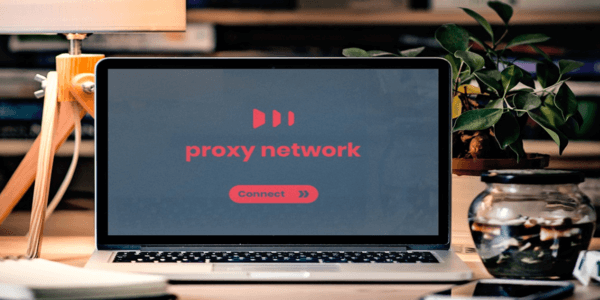
Wondering how a proxy works?
Let’s say you want to watch a live streaming match only available to US residents. But unfortunately, you’re in London.
When you use a proxy connection, your computer sends a streaming request to the server in the US to view the video. The US proxy server will intercept the request from your computer and send the information using a US IP address. When the proxy server gets access to the video, it sends the data back to your computer.
Simply put, the proxy server works as an interceptor between your computer and the other server.
Despite all its usefulness, it has an underlying problem, slow connectivity. That’s because of numerous interceptions between your computer, the server, and the host computer.
Without a proxy, your connection is a two-way thing. But with a proxy, it becomes a three-way thing. That’s why connections are slower when using free proxy sites.
Another problem is a security lapse. If you’re anxious about your information being vulnerable, you should remain wary of proxy servers.
That is because proxies do not offer encrypted protection to your personal information, unlike VPNs. Instead, they forward precisely what information their servers receive without any form of encrypted security.
Also, using a proxy may be a bad idea for torrenting. That is because it won’t hide your torrent activities from the ISPs.
These reasons outweigh the benefits of hiding IP addresses with a free proxy, making it a bad alternative.
4. Using public WiFi
We hope you would have chosen your best option by now. But if you haven’t, here’s the last workaround to hide your real IP address: using a public WiFi network.
While it’s viable and often free, we don’t advise you for that.
Public servers are not meant to protect the IP address. Instead, they are offered where it isn’t easy to get internet service in a particular location.
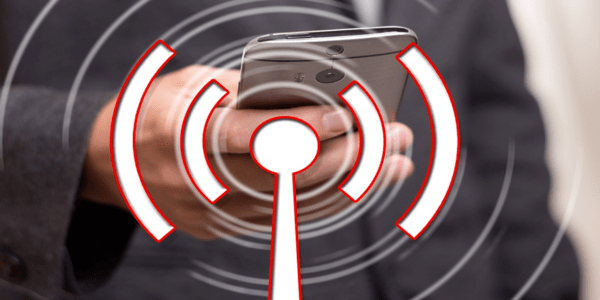
Generally, your Internet Service provider (ISP) is responsible for assigning an IP address to your system. However, when using another ISP, the IP address automatically reflects one from the new ISP.
It is an excellent option to hide your activities from other internet servers and users. But the problem with this method is the high level of security risk involved.
If you’re using Public WiFi, your computer would be vulnerable to malware, hackers, and other internet security threats.
Also, this method will not prevent geographical blocks since you’re connecting from the same location.
It’s only valid if you want to use a different IP address other than yours to access a website’s content.
Notably, faking your IP through public WiFi is not a permanent solution. Instead, it’s more of a quick fix.
Which method of hiding my IP address should I pick?
The answer to this question depends on your browsing requirements and budget limitations.
Technically, a VPN is the best option to get a fake IP address and online location. Besides anonymity, it also provides you with complete online privacy and security.
However, if you can’t risk your money to get a dedicated VPN server and can bear slow connection speeds, using Tor might be the best option to hide your IP address.
In contrast, a proxy will slow your connections, even when you pay. (Yes, there are paid proxies, too).
Proxy is not recommended for everyday use; you can use it in extreme need. But make sure you don’t waste money on paid proxies; go only with free ones as paying, in this case, won’t make much difference.
So, in all, using a reputable VPN is the most effective and surest way to hide your IP address without compromising speeds. But if you cannot afford the cost, you can always use a free service like the Tor network.
How to check your IP Address online
So now you know how to hide your IP address. But how would you determine if it is working?
Technically, you need to verify that you have successfully hidden your public IP address before proceeding with your intended activity. For that, you must check your IP address first to ensure you don’t make mistakes that would blow your cover.
The simplest way to verify the successful masking of your IP is to use this IP checker tool. It should show a location and an IP address different from yours. Ideally, it will be the one that your VPN or proxy has provided you with.
Alternatively, you can follow these steps to ensure you have hidden your online IP location.
Step 1: If you are using a VPN, proxy server, or connected to the Tor Network, disconnect it and go over to a search engine, such as Google.
Step 2: Type the words “My IP” and press enter.

If you have not successfully hidden your IP address, Google will bring out your computer’s IP address like this:
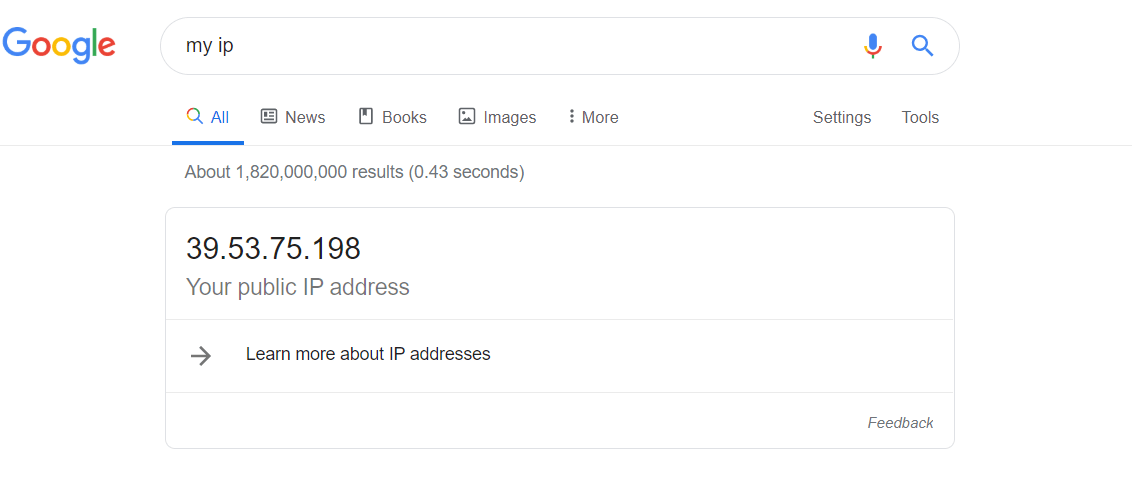
Step 3: You now know your real public IP address. Connect back to the VPN, Tor, or proxy network, clear your device or browser cache, and repeat step 2.
Now, you won’t see your actual IP address location but the assigned proxy IP passed by your computer. If you can verify a change, you’re all set to start browsing with privacy.
What are the benefits of hiding my IP address?
Most people love hiding their IP addresses to get easy access to download illegal (or forbidden) materials.
But that’s not right. Nor did we set up this guide to facilitate such wrongdoers.
Nonetheless, there are several other benefits of hiding your IP address – the legal ones.
1. Bypass content restrictions
Sometimes you might be genuinely looking for important information, and the website will come up with the usually annoying reply,
Oops, sorry this information is restricted from your IP address.
That means the site blocks IP addresses from specific geographical locations.
Sometimes, private firms restrict access to their content from specific IP addresses to curb copyright infringements.
Likewise, the governments in different countries might also block specific sites from showing content to internet users in the region. Often, it’s due to political reasons, like in the Middle East and China.
But if you hide your IP address, you can access that information like your real IP address becomes anonymous, and the device shows a fake one to the portal you visit.
2. Protect your personal data online
Another reason to hide your IP is to avoid misusing your personal information as you browse privately online.
Yes, everybody loves the freedom of browsing without any server spying on them for their personal information.
Most servers do this to get precise information to send personalized ads to your IP address. Some even sell your data to advertisers. The servers can also track your location, even when you turn off location services.
But if you hide your IP address, you may surf the net without worries.
Methods that never work to hide your IP address (and so, you should avoid)
Surprisingly, the following techniques are popular among users for maintaining privacy. However, you should be clear that these methods never hide your IP address, nor do they anonymize you online. So, if you intend to hide your real IP, avoid using or relying on them.
1. Private browsing via a web browser (Incognito)
The look and feel of incognito mode in most browsers give the impression that they make you anonymous online. However, that’s not true.
Private or incognito browsing mode never hides your IP address. Nor does it protect your data from your ISP. Instead, it only prevents your browser from storing your browsing history on your device.
2. Using NAT Firewall
A NAT Firewall is typically meant to provide unique private IP addresses to the devices connected to a single router. That’s how it helps multiple devices to operate uniquely while having the same public IP address. However, it doesn’t hide, modify, or mask your public IP.
3. Asking your ISP for a new IP address
As evident, getting a new IP address from your ISP assigns a new IP to your device altogether. Now, this new IP is visible online, similarly to your previous one. While you can use this technique to evade IP bans, you can’t use it to hide your IP online.
Can my IP address be hidden 100%?
As a rule of thumb, no technology is ever 100% fool-proof. The same applies to the methods to hide your IP address online.
But that doesn’t mean that you should abandon this idea altogether.
Basically, proxies, VPNs, and other strategies aim at providing you – the user – online privacy and a greater level of anonymity. These tools not only strive to protect you from cybercriminals but also surveillance and web tracking entities.
However, many other features on your devices also somehow leak your IP address. These include potential exposures via DNS, WebRTC, and more. But if you use robust tools like a premium VPN, you can effectively prevent such IP leaks.
Indeed, you don’t need to become entirely anonymous like a criminal. What you need (and deserve) is protection against potential intruders.
You can effectively achieve this goal by using a VPN. It will typically mask your IP address, DNS, and almost all other ways intrusive web trackers may reach your device.
However, the onus of this online privacy comes to you, the user. That’s because the ultimate choice of the tool to protect your IP address is yours.
With web proxies, you might not expect better anonymity. That’s because most proxies often fail at adequately encrypting your data. Thus, they keep you vulnerable to interception by ISP and other entities. Likewise, you might face problems accessing restricted content (such as streaming services), as the corresponding platforms could still detect you.
So, you should always use a reliable VPN to hide your IP and keep all snoopers at bay. Even if not 100%, you can still attain a far greater level of online privacy and anonymity this way.
Does using a VPN hides my IP address from my ISP?
Your ISP is the one that provides you with an IP address. Hence, you never hide your IP from the provider itself. Nor is a VPN meant for that.
A VPN, however, protects your internet traffic from your ISP by applying encryption. This way, your ISP can see you connected online but can’t trace your activities.
On the other hand, VPNs mask your real IP with a virtual one for the internet world. So, while your activities remain known to the corresponding online parties you communicate with (such as the websites you visit), they can’t know your real IP address. That’s how they can never chase you online.
Conclusion
As mentioned earlier, there are several reasons why it is essential to hide your IP address when going online from your mobile or computer.
That’s why this guide explained those reasons alongside elaborating on the various ways of hiding IP addresses. Hence, you should now be able to choose a method that best meets your browsing habits.
Precisely, you should prefer using a robust VPN like ExpressVPN that warrants inclusive online security with a fast internet connection.
Whereas occasionally, you can opt for Tor when you want to surf the net and browse web pages anonymously. Thankfully, it is free.
You can also use proxy servers for intermittent private browsing, but public WiFi is a no-no. If you want to hide your IP address free, you can always use the Tor network.
Overall, your choice depends on what you want, the protection you need, and your financial strength to get a dedicated VPN server.
Images via Pixabay and Wikipedia.
FAQs
Generally, it is legal in almost all countries to hide your IP location using proxies and VPNs. However, some countries, such as China, Saudi Arabia, and Vietnam, have strict laws. A few regions even deem using VPNs illegal. But as far as you are not in a repressive country, you can easily use proxies or VPNs.
Yes. Most web proxies and even some VPNs are available for free. So, you can use these tools to hide your IP address. But we won’t advise you on that since free tools seldom offer good security. But if you want to mask your IP temporarily without much concern for privacy, you can use these tools. Alternatively, you can connect to a public WiFi network. Whereas a securer workaround is to use Tor, but be ready to face slow browsing speeds.
In some cases, yes, it does. Usually, your IP address directly reveals your location, that is, your city and country. Also, tracing an IP address can link to your real-time geographical coordinates. Besides, tracking your IP address also gives information about your ISP, device details, and more.
